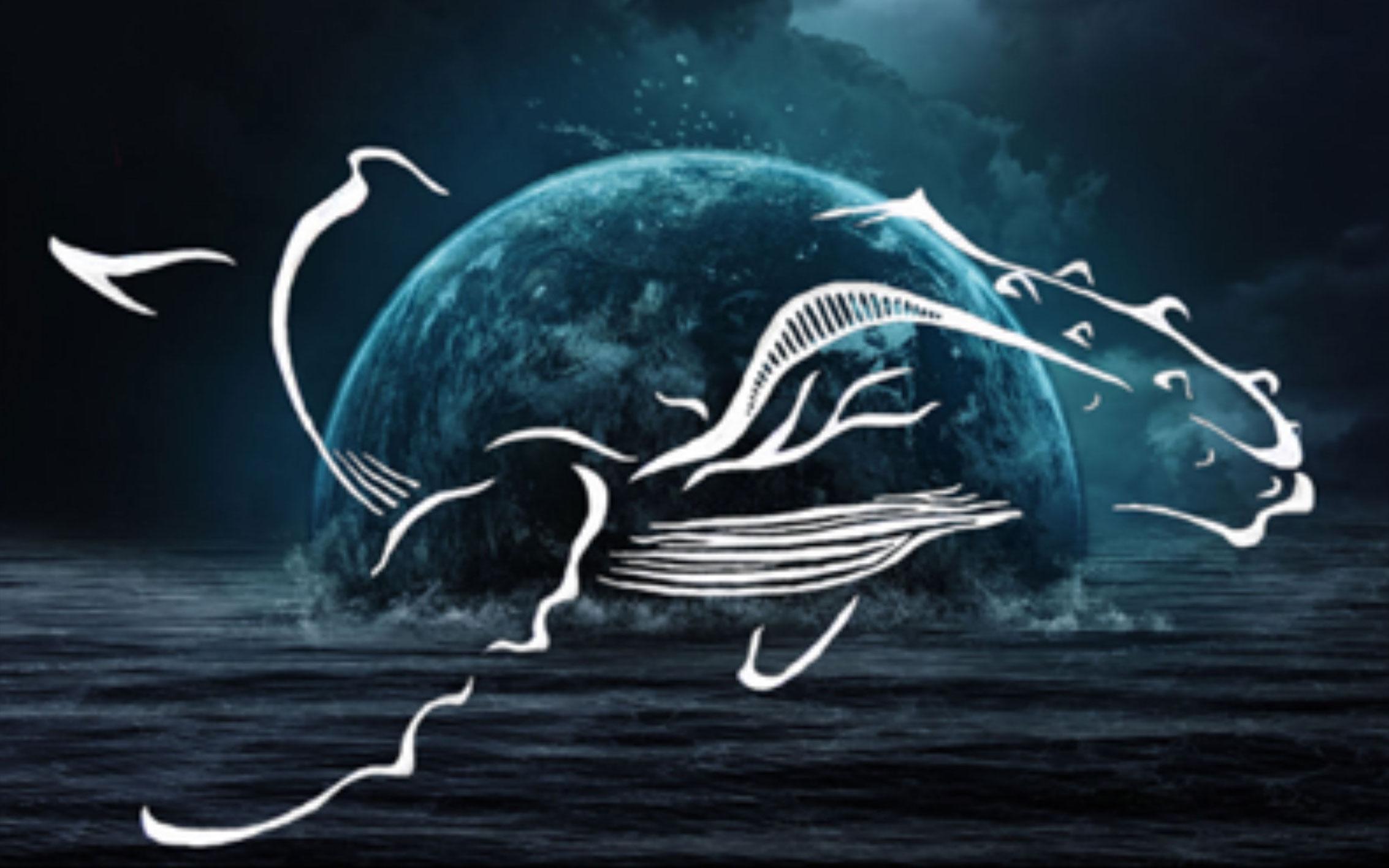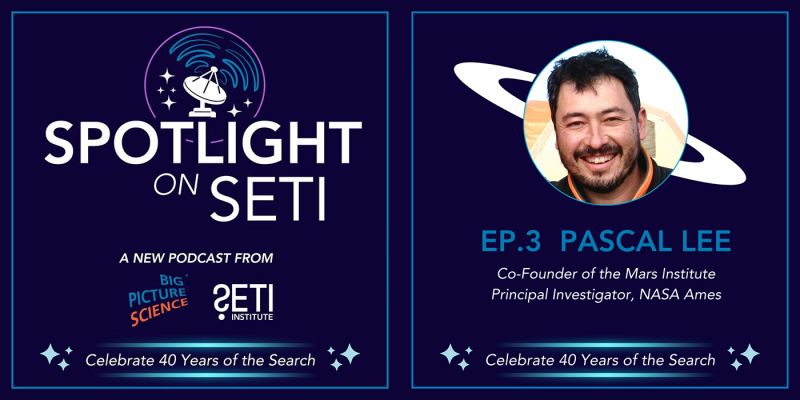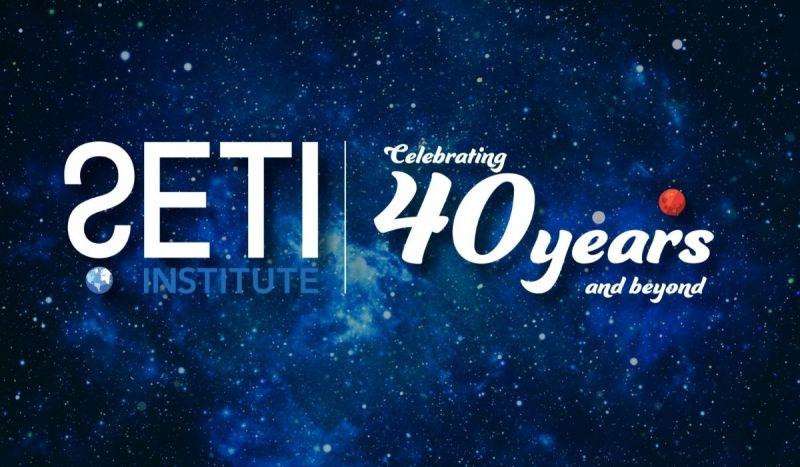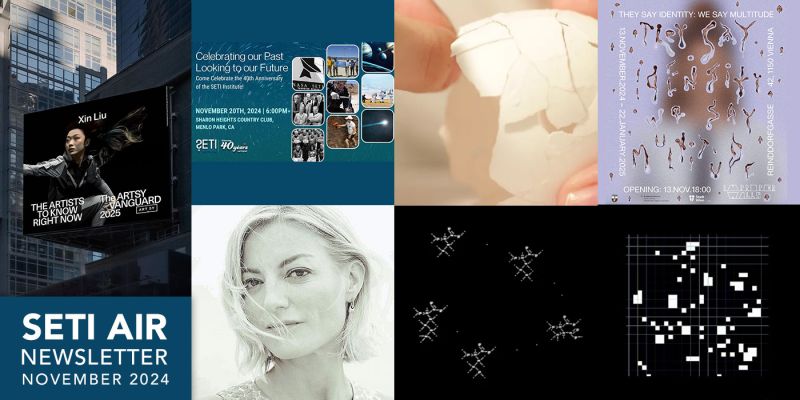The SETI Institute conducts public and privately-funded research across a wide spectrum of physical and biological sciences.

Download our full report HERE
The work of the SETI Institute is focused in three areas: scientific research, education and public outreach.
Home to more than 80 scientists, the SETI Institute conducts public and privately-funded research across a wide spectrum of physical and biological sciences. Research and expeditions are conducted in six primary areas: astronomy and astrophysics; exoplanets; astrobiology; climate and biogeoscience; SETI; and planetary exploration.
The SETI Institute creates and supports educational programs through curriculum development and collaborations to promote interest in, and knowledge of STEM to teach and excite children, young adults and educators. Some of our signature programs include Airborne Astronomy Ambassadors for high school teachers, Reaching for the Stars – NASA Science for Girl Scouts, and the National Science Foundation’s Research Experience for Undergraduates summer science internship program.
We are committed to sharing our research and discoveries with the world through our website, social media, publications and public presentations and our radio program and podcast, Big Picture Science.
Here are some highlights of what we’ve been up to just since April of this year:
-
Significant Highlights and Events:
-
A new book, From Habitability to Life on Mars, edited by Nathalie Cabrol and Edmond Grin explores what we know about the environment on Mars, how it has evolved, and whether it can, or once could support life. In addition to Nathalie and Edmund, contributors include several SETI Institute researchers including Janice Bishop, J.R. Skok, Virginia Gulick, Pablo Sobron, David Summers, and Kimberley Warren-Rhodes.
-
J.R. Skok launched a crowdfunding campaign for EARTH: An immersive AR/AI Experience & Model of Our Planet as Science Advisor for AstroReality.
-
Margaret Race was honored by the city of Menlo Park, CA with its Community Appreciation Award for her service as Library Commissioner.
-
-
SETI Institute scientists are regularly interviewed in print and digital publications, radio and podcasts and other popular media:
-
Nathalie Cabrol was featured in the New York Times Sunday Magazine “Voyages” edition – Nathalie Cabrol Searches the Earth for the Secrets of Life on Mars
-
Melissa McGrath was interviewed by the New York Times for an article about water plumes on Europa – New Dive into Old Data Finds Plumes Erupt from Jupiter’s Moon Europa
-
Rosalba Bonaccorsi was interviewed by Diaphanes – From Xenolinguistics to Cephalopods
-
-
SETI Institute scientists have 50 peer-reviewed articles published or accepted for publication in top scientific journals including:
-
Red material on the large moons of Uranus: Dust from irregular satellites? (Icarus, Richard Cartwright)
-
Climate forcing of ripple migration and crest alignment in the last 4—kyr in Meridiani Planum, Mars (Journal of Geophysical Research, Lori Fenton, Tim Michaels)
-
Inadvertently finding Earth contamination on Mars should not be a priority for anyone (Astrobiology, John Rummel)
-
-
The work of SETI Institute scientists has been or will be featured at scientific conferences and events including:
-
Lunar and Planetary Science Conference XLVIX – Nathalie Cabrol, Janice Bishop, Lori Fenton, and Kimberly Warren-Rhodes
-
55th Annual Meeting of the Clay Minerals Society – Gözen Ertem and Janice Bishop
-
Sixth Annual Science & Astrobiology Division Science Jamboree – Alessandra Ricca, Joseph Roser, Cristina Dalle Ore, Rosalba Bonaccorsi, and Hiroshi Imanaka
-
-
Educational activities include program work as well as talks at schools and other educational venues:
-
Airborne Astronomy Ambassadors webinar series and in-person workshops – Dana Backman, Coral Clark, and Pamela Harman
-
Reaching for the Stars: NASA Science for Girl Scouts Golden Gate Bridging event and exhibit – Pamela Harman
-
MarsFest exhibit and activities in Death Valley National Park – Rosalba Bonaccorsi
-
-
The SETI Institute shares its learning with the general public through a wide variety of public presentations including:
-
Astronomy on Tap – a nationwide public talk series that takes place in local bars with astronomers offering informal presentations – Michael Busch, Kathryn Bywaters, and Seth Shostak
-
California Academy of Sciences Astronomy Day – Franck Marchis
-
San Francisco Amateur Astronomers – Matthew Tiscareno
-
The SETI Institute is committed to sharing our work, discoveries and passion. Learn more about our recent activities in the SETI Institute Activity Report April – June 2018





